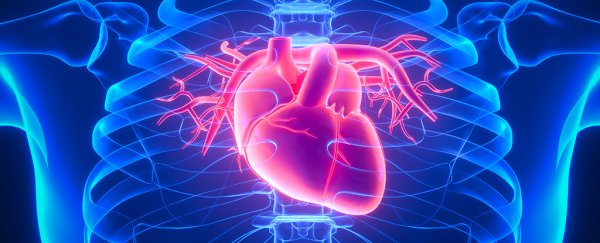We know the devastating effects Parkinson's disease can have, but scientists are still trying to figure out how it gets started and how to cure it.
Some new research may have found helpful clues, linking having a heart attack with a lower risk of developing Parkinson's later.
The drop in risk is around 20 percent, based on an analysis of 181,994 patients in the Danish health system who suffered a heart attack between 1995 and 2016, compared with 909,970 control subjects, matched for age and sex and the year of their heart attack diagnosis.
What's more, the chance of developing parkinsonism – which brings on the same sort of movement difficulties and other symptoms as Parkinson's, though, in this study, isn't classed as Parkinson's itself – was found to be reduced by 28 percent as well. Researchers followed up with study participants for a maximum of 21 years.
"The risk of Parkinson's appears to be decreased in these patients, in comparison to the general population," says first author of the new paper, epidemiologist Jens Sundbøll from Aarhus University Hospital in Denmark.
It's the first time research has looked at Parkinson's disease risk in heart attack survivors, and it's still early days for figuring out why the risk is lowered. Both heart attacks and Parkinson's have a complex set of risk factors, and it's possible that the answer to this relationship lies somewhere in them.
Certain classic risk factors for heart attacks – including smoking, high cholesterol, high blood pressure, and type 2 diabetes – have previously been associated with a lower risk of developing Parkinson's disease, so these links may be driving the results seen in the new study.
However, other risk factors are the same. Heart attacks and Parkinson's are more likely in the elderly and less likely in people who drink more coffee and are more physically active.
The new study gives doctors more guidance on where to focus their attention on people recovering from a heart attack.
"For physicians treating patients following a heart attack, these results indicate that cardiac rehabilitation should be focused on preventing ischemic stroke, vascular dementia, and other cardiovascular diseases such as a new heart attack and heart failure," says Sundbøll.
It would seem, however, that a reduced risk of Parkinson's disease and parkinsonism may follow after a person has had a heart attack. Further studies are needed to make sure, especially in more diverse racial and ethnic groups (though this research used a large sample, they were predominantly white).
Future research also needs to consider the impact of smoking and high cholesterol levels on the relationship between heart attack survivors and a reduced risk of Parkinson's, which wasn't closely looked at in this study.
"We have previously found that following a heart attack, the risk of neurovascular complications such as ischemic stroke [clot-caused stroke] or vascular dementia is markedly increased, so the finding of a lower risk of Parkinson's disease was somewhat surprising," says Sundbøll.
The research has been published in the Journal of the American Heart Association.
